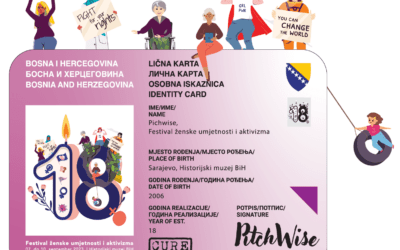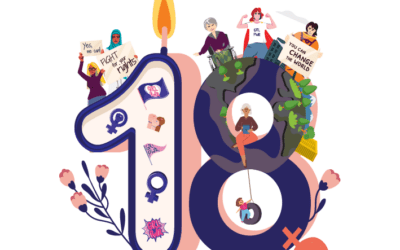Challenges for old/new economic inequalities
Inter-University Centre Dubrovnik, Croatia
24-29 May 2010
The Zagreb Institute of Ethnology and Folklore Research, the Centre for Women’s Studies – Zagreb, Croatia, the Center for the Study of Gender and Culture, Lahore, Pakistan and the University of Udine, Italy are pleased to announce the fourth postgraduate course with the overall theme of feminisms in a transnational perspective.
This year, colleagues from Udine and Lahore will join the board of co-directors.
The topic for the 2010 course is Challenges for old/new economic inequalities.
Course co-directors:
Renata Jambresic Kirin, Institute of Ethnology and Folklore Research, Croatia (renata@ief.hr)
Durre S. Ahmed, Center for the Study of Gender and Culture, Lahore, Pakistan
(durresahmed@csgcpk.org; durresahmed@yahoo.com)
Rada Boric, Centre for Women’s Studies, Croatia (zenstud@zamir.net)
Natka Badurina, University of Udine (natka.badurina@alice.it)
Challenges for old/new economic inequalities
(summary)
Half a century ago Simone de Beauvoir asked why women do not share a group solidarity even though their oppression as the second gender cuts across class, racial and religious differences. She encouraged true feminists to be part of the left political forces in order to fight for a better world. Today, at a time of “postindustrial” financial capitalism oppression, and when inequality and welfare gaps are taking on new forms, feminists across the globe are far from sharing the same transnational agenda and the new/old left is in deep crisis.
Thus, the need for cross-gender, cross-race and cross-class solidarity, old (trade unions) and new forms of struggle (social and alterglobalist movements) against the mighty profiteers of neo-imperial globalization is waiting for urgent feminist reflections and activism. This is particularly relevant today when the dominant economic and political paradigm is finally being challenged more widely in public discourses, raising critical questions of a sustainable human future. The under-pinning factor of this change is the increasing global recognition of the need for partnership and interdependence between women and men, humans and nature, the mind, body, and soul as opposed to competition, the mindless rat race, over-consumption and social alienation. Apart from theoretizations offered by feminists and women-friendly economists, ecologists, developmentalists, geographers, sociologists, macrohistorians and others, we are looking for various good practices of nurturing the feminine sacred spirit and raising women’s economic, cultural and symbolic capital. An important inspiration for relating economic and gender inequalities with the feminine spirit comes from Riane Eisler, the macrohistorian who proposed the seminal cross-cultural difference between androcracy and the partnership social model, the last being the foothold for her “caring economy” concept.
Some of the leading dilemmas and questions of our forthcoming course are as follows:
how can women oppose the intention of “cognitive capitalism” to exploit the codified and tacit knowledge of native communities; how can they activate their genuine transcendental aspirations to bring the sacred question of life back to the world
how feminist articulation enables us to look differently at various labour regimes, mobile labour and volatile capital across different global and local spaces
the consequences of denying the gender impact of the crisis – and what kinds of existing alternative economics exist (gift economy, fair trade, caring economy, ethics of partnership, microcredit loans for women, complementary currency system)
how the need for women’s leadership contributes to the holistic vision of human sustainability.
The guiding principle of the course is a feminist critique of the rhetoric of “capitalism’s temporary difficulties” and the belief that only critically-aware cross-gender, cross-race and cross-class solidarity, supported by the global communications network, can bring us closer to the ideal of human sustainability and social justice. Only by raising women’s critical and political voices can we build stronger coalitions to take the next leap in liberation for ourselves and the planet so desperately in need of women’s leadership.
Eligibility:
IUC courses are conducted at the postgraduate level. All postgraduate students interested in the topic may apply to participate, although the course targets young scholars and post graduate students with special interests in women’s studies, transnational studies, postcolonialism and anthropology. The course will be limited to 25 participants (15 students), in order to provide sufficient space for discussion, seminar work and student presentations during the course. Participants are asked to seek funds from their own institutions to cover travel and accommodation costs. Limited financial support is available for participants from Central and Eastern Europe.
Application Procedure:
A short narrative explaining your interest in the topic and your C.V. (please be sure to include all your current contact information at the top of your C.V.) should be submitted by e-mail to renata@ief.hr or zenstud@zamir.net with the subject: IUC Dubrovnik 2010. The deadline for paper proposals is January 10th, 2010.


